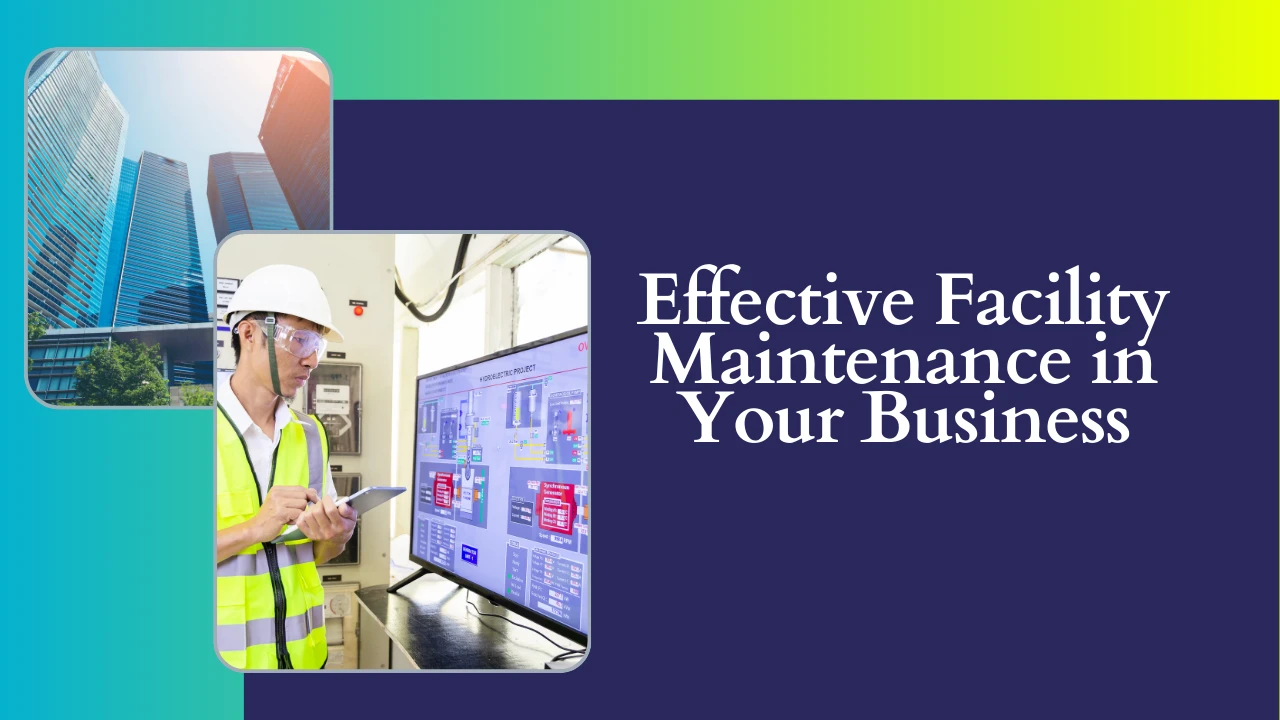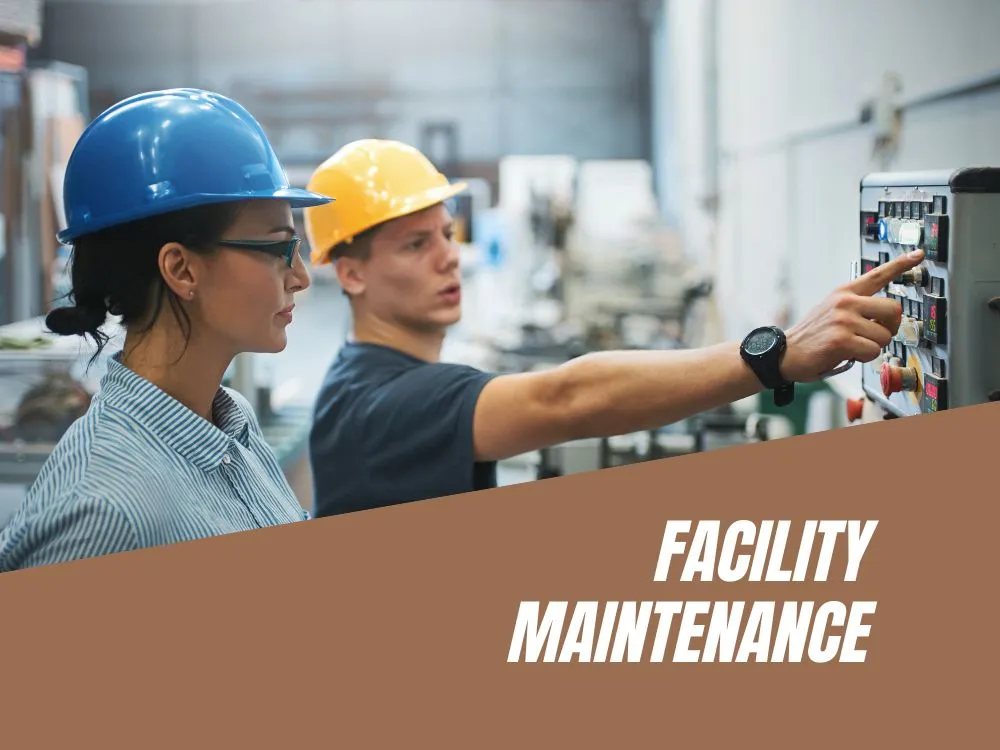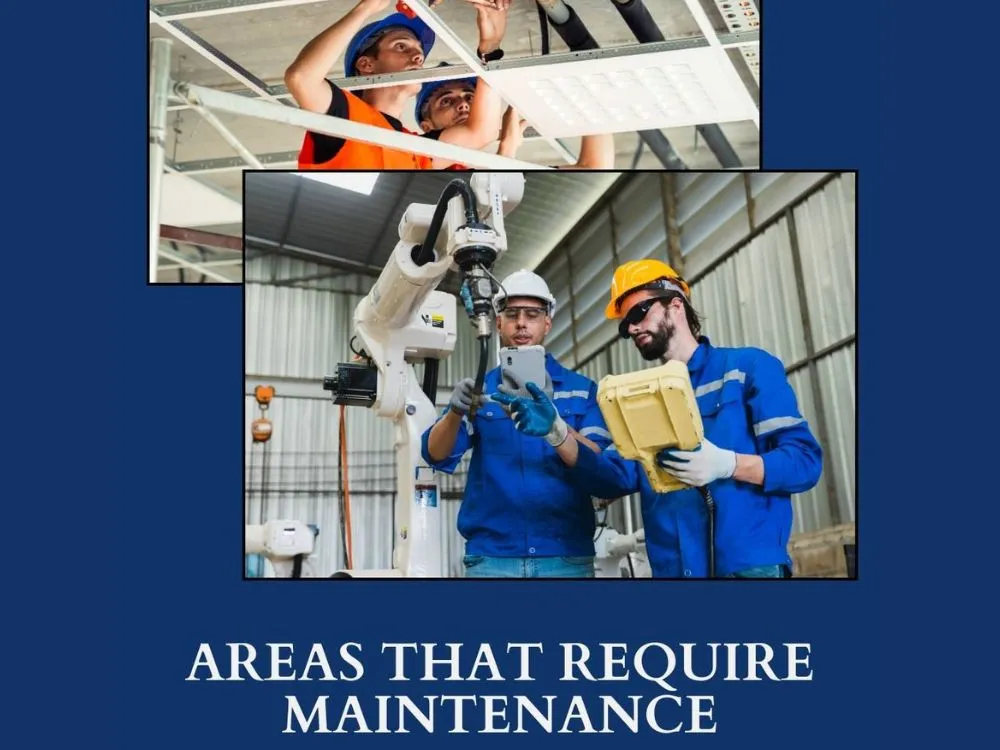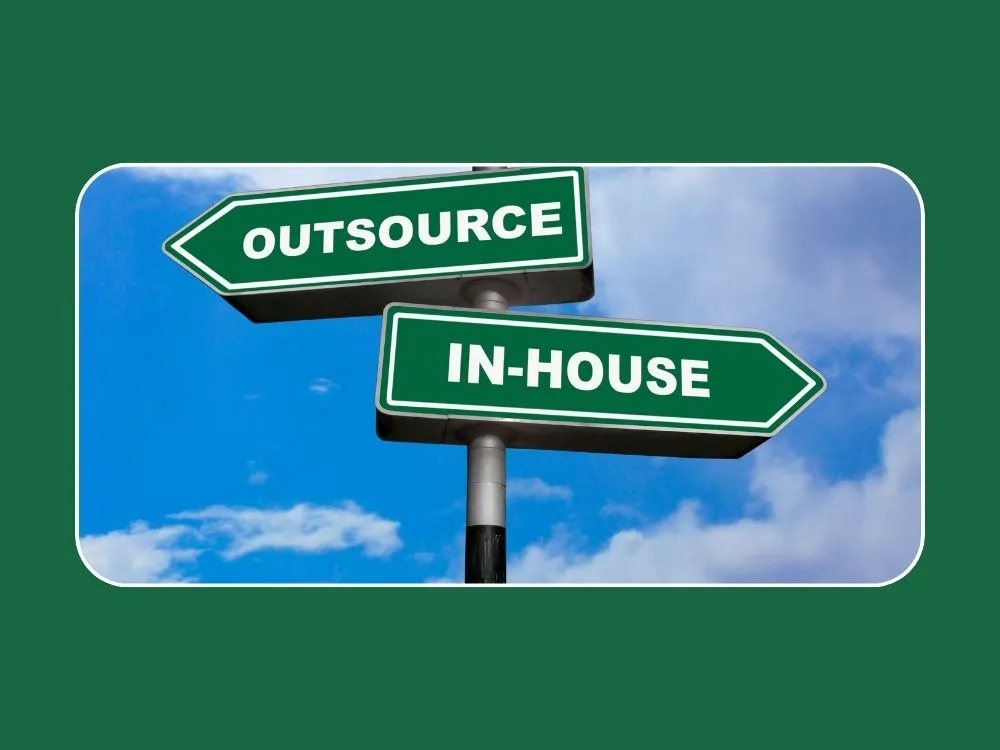
Quick Tips for Effective Facility Maintenance in Your Business
Why do businesses need facility maintenance? What exactly do they gain from spending money on facility maintenance services? If you have these questions in mind, let's discuss the reasons.
Every business has its physical place and equipment that need proper maintenance. This is essential to run the business operations smoothly. So, facility maintenance is inevitable, which ensures that all systems in the building work properly without any significant hassles or breakdowns.
These building systems are vital to run a building facility, which are known as:
- Heating, Ventilation, and Air-Conditioning (HVAC)
- Water Supply System
- Electricity Distribution
- Sewage System
- Vertical Transportation (Elevators & Escalators)
- Fire Safety
- Vehicle Parking and Security
Apart from these vital systems, there are some other important elements found in buildings that are relevant to the organization's type and operation.
Moreover, improper facility maintenance may lead to more system breakdowns and eventually impact business operations. This is why companies need to have a proper maintenance system to uphold business efficiency and reduce maintenance hassles.

Key Areas of Facility Maintenance
A combination of key areas that are prioritized when performing facility maintenance in business organizations. It helps effectively reduce major issues in the buildings. A business facility contains several services, where the critical areas should be properly maintained to minimize operational breakdowns and ensure smooth running.
These systems need daily, weekly, monthly, quarterly, biannually, and annual services and maintenance to upkeep. Therefore, organizations schedule their maintenance accordingly. They conduct different maintenance like predictive, preventive, corrective, and total productive maintenance. Now let's discuss the key areas or systems that need maintenance:

01. HVAC Systems
An HVAC system refers to heating, ventilation, and air-conditioning that is necessary to ensure adequate ventilation or heating requirements of a building. It is most commonly used for a ventilation system and contains major equipment such as:
- Chillers
- Air Handling Units (AHU)
- Cooling Towers (in water-cooled systems)
- Fan Coil Units (FCUs)
- Ducts
- Pumps and Other Necessary Equipment.
The chiller is the most important part of the HVAC system, which includes vital components like a compressor, condenser, expansion valve, and evaporator coil. The system needs proper maintenance, where the critical equipment and components should function properly to meet the ventilation requirements of a building.
02. Electrical Systems
An electrical system is another crucial thing in a building where a necessary power supply is important for the smooth operation of all important equipment and building components. The main electrical system of a building contains various sub-systems such as:
- The Ring Main Unit (RMU)
- Main Switch Box (MSB)
- Automatic Transfer Switch (ATS) panels
- Synchronizing Panels
- Generators as backup
- Bus bars
- Tap-Off Units and other important systems
These systems require proper maintenance to prevent electrical outages and operational breakdowns. This is a very critical system where interruptions in electricity distribution can impact every other system and its continuous functionality.
03. Water Supply Systems
Water supply is another important system in a building that contains primary elements such as
- Sumps
- Water Purification Systems
- Supply Pumps
- Valves
- Overhead Tanks
- Risers
- Taps and Other Fixtures
These elements need necessary maintenance to enable a continuous water supply to the building occupants. All necessary elements require daily, weekly, monthly, and annual maintenance to minimize defects.
If the water supply is cut off or insufficient, it can affect the HVAC system because water-cooled chillers require an adequate and continuous water supply.
Also, washing, drinking, and cooking purposes depend on an uninterrupted, continuous water supply. Therefore facility maintenance staff need to ensure the systems' continuous functionality.
04. Structural Maintenance for Safety and Aesthetics
Structural maintenance involves fixing wear and tear, cracks, water seepage, paint fades, broken fixtures, and many other civil works. A building structure comprises many essential features like walls, pillars, windows, doors, stairs, ceilings, façade, carpets or tiles, and many other vital structural fixtures.
When there are problems in the structural elements, they need proper maintenance to uphold the longevity of the system components and reduce frequent defects. This will also enhance the building's aesthetics and ensure a safe place for its occupants.
Quick Tips for Efficient Facility Maintenance

Regular Inspection and Maintenance
Regular inspection and checks help keep the building in optimum condition by catching issues as soon as they appear. It assists in rectifying the building and its essential components from malfunctioning.
Regular checks let building owners maintain their facility as per the operational standard. Plus, it enhances facility and asset life span. It also helps protect businesses from equipment failure losses, operational breakdowns, product delivery delays, and other consequences.
Prioritize Safety Measures
Prioritizing machinery and human safety is crucial for businesses. This helps avoid unnecessary incident occurrences and machinery breakdowns, which ensures continuous operation.
Every facility has its safety-related concerns, where implementing adequate safety measures is the employer's responsibility to protect the building and its occupants.
Facility maintenance is a good support to enhance the safety of an organization. It helps reduce equipment malfunctioning, hazardous exposure, and other related issues. So, it has been considered an inevitable tool when it comes to workplace safety.
Effective Cleaning Practices
Proper cleaning is one of the important things in facility maintenance, which drives a more aesthetically appealing, pleasant, and safe environment for the building occupants.
Cleaning involves many essential duties and responsibilities, and companies need to hire the best talent for housekeeping jobs. Proper cleaning enhances overall maintenance and leaves a good impression on the visitors to the business premises.
Moreover, facility maintenance requires comprehensive support from the housekeeping department to perform all their necessary maintenance without any issues or delays.
Timely Repairs
Every facility faces many maintenance-related issues and breakdowns that need timely repairs to fix things immediately. This helps continue the operation processes without wasting precious money-making time.
Doing timely repairs is important, like performing immediate corrective actions when a system fails. It's essential to reduce the amount of time being wasted on maintenance activities and protect companies from losses.
Also, timely repairs need many vital things such as proper work order handling, material sourcing, competent in-house staff, etc. Businesses must arrange these necessary things at the workplace to do repairs on time.
Using Technology for Facility Maintenance

Smart Monitoring Systems
Technology plays a pivotal role in facility maintenance, and when it's used correctly, business owners can drastically make improvements in their building facility. Smart monitoring of systems utilizes advanced technology to maintain the buildings. It helps professionals reduce the manual burdens of monitoring the facility.
Building Management Systems (BMS), CMMS, CAFM, and various other software are effectively utilized to monitor the systems and components of a facility. These technological tools are capable of producing real value for the business by reducing humanized errors, time-consuming maintenance, energy monitoring, and many others.
Maintenance Management Software
As we have discussed in the previous section, there are many software tools available for efficient facility maintenance management. Such tools can be very helpful in planning, organizing, monitoring, and regulating systems and their components.
For example, A BMS system uses advanced software that is integrated with many field devices (sensors) installed in the equipment, like HVAC components, lighting components, electrical devices, and various other systems. This software system automates the maintenance workflow and minimizes human errors.
Outsourcing vs. In-House Maintenance

Pros and Cons of Outsourcing
Outsourcing is simply known as obtaining services from external companies or service providers. In facility maintenance, businesses hire outsourced service providers for certain service provisions on a contract basis. It has both advantages and disadvantages as discussed in the table below:
| Outsourcing Pros | Outsourcing Cons |
|---|---|
| Obtaining external talents for, the company | Common communication pitfalls are there |
| Less time consuming to fix complex maintenance issues where service providers are hired based on their professional skills of service delivery | Service providers have less knowledge about the business and its culture they are dealing with |
| Businesses can save costs by hiring new employees for facility maintenance | Chances for a data breach, theft, and sometimes unauthorized access to prohibited areas. Also, workplace conflicts are possible when service providers find errors in the in-house employees' work. |
| Businesses have a chance for scalability | Service providers can sometimes provide fake service reports if an authorized in-house staff fails to check post-work |
| Can obtain security where the contractual agreement between the business and service provider ensures adequate safety | Increase the complexity of implementing business solutions with service providers. They are less controllable |
In-House Maintenance Team
The in-house maintenance team is responsible for performing all facility maintenance work for a company. They are employees generally hired by the organization. This team includes engineers, facility managers, and technicians like HVAC technicians, electrical technicians, PABX technicians, and others to maintain different services.
The in-house maintenance team is always accessible for any maintenance-related requirements in the building. They have to attend to any maintenance issues, conduct facility checks, perform audits, do preventive maintenance, and many other tasks.
The in-house maintenance team should be led by a competent professional, like a facility manager or director, who should have a thorough understanding of building maintenance to enhance the facility's condition. Plus, there should be good coordination among team members to do the work right.
Case Study Example
Facility maintenance has helped several business organizations achieve their core value, missions, and visions by comprehensively managing the supporting services. We can find some real-life examples of such companies that elevate their business core function below:
Singapore Airlines
An airline facility needs rigorous maintenance, and Singapore Airlines is known to be one of the best airlines in the world. They demonstrated the necessity of facility maintenance by implementing vital aircraft maintenance practices.
They ensure their fleet's safety and enhance operations by adhering to a tight maintenance schedule and an advanced monitoring system. Their commitment to facility maintenance lets them earn more customers for their services, ensure safety, on-time departure, reduce downtimes, and many other benefits.
Walt Disney World Resort:
They are well-known for a large theme park facility that tends to provide the best customer experience. Their largest facilities are well taken care of by doing necessary facility maintenance.
Their resort and theme park facilities are often visited by a huge number of people. So, they follow adequate facility maintenance practices to enhance their services, safety, customer experience, and so on.
Wrapping Up
Facility maintenance is considered a crucial function to ensure business continuity and for a smoother operation. A business facility has several systems and components like HVAC, electricity, vertical transportation (elevators, escalators), water supply, communication, fire safety, and many other systems that require essential care.
Several technological tools are there to effectively perform maintenance tasks, and businesses should utilize these advanced technological software tools to properly maintain their facility.
FAQs
Q1: Why is facility maintenance important for business success?
Facility maintenance ensures that a business's physical place and equipment function smoothly. Proper maintenance of systems like HVAC, electricity, water supply, and several others reduces breakdowns, operational issues, and impacts on business operations.
Q2: What are the key areas of facility maintenance that businesses should focus on?
Essential areas of facility maintenance include HVAC systems for ventilation, electrical systems to prevent outages, water supply systems, and structural maintenance for safety and aesthetics.
Q3: What are some quick tips for efficient facility maintenance?
Regular inspection, prioritizing safety, effective cleaning, and timely repairs are some key tips. Also, regular checks help catch issues early, safety measures prevent incidents, cleaning improves aesthetics, and timely repairs save time and costs.
Q4: How does technology contribute to facility maintenance?
Smart monitoring systems and maintenance management software like BMS and CMMS help automate monitoring, reduce errors, and enhance maintenance efficiency.
Q5: Why is facility maintenance essential for business continuity?
Maintenance ensures that critical systems function properly, prevents operational disruptions, and supports the core functions of a business.
Explore Related Articles
https://smarttoolsai.com/post/boiler-maintenance-and-pressure-converter-usage
.webp)